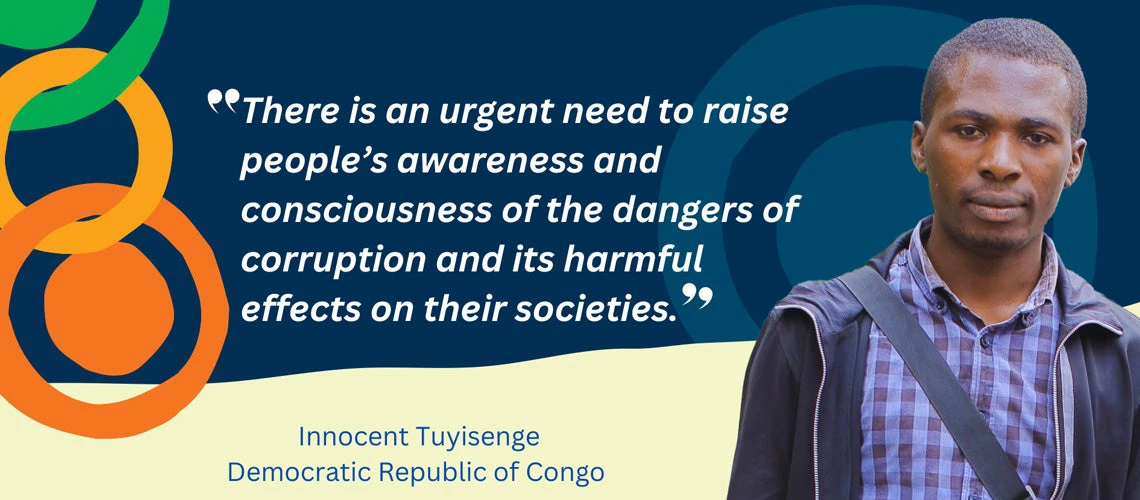 Innocent Tuyisenge
Innocent Tuyisenge
In a chaotic society that normalizes vices, curbing corruption is no easy task.
But, what are the root causes of corruption? Corruption is evinced in the hearts of rapacious and covetous individuals as an obsession with money and metastasizes into a burning, red-hot flame that destroys two sacred values of humanity—virtue and morality. In Africa, apart from the wars and social conflicts tearing the continent apart, corruption can be likened to a dreaded virus that weakens or adversely affects economies, justice systems, governance, and human rights. Tackling corruption together to ensure the future development of their countries should be the top priority of civil society and youth organizations.
Corruption can be fought at different levels. There is an urgent need to raise people’s awareness and consciousness of the dangers of corruption and its harmful effects on their societies. Awareness-raising campaigns must be organized in the media, schools, and workplaces to educate citizens about the various aspects of corruption, its multiple forms and the means to combat it. In addition, training and capacity-building programs for key players such as politicians, government officials, and anti-corruption teams can also have a considerable impact on efforts to eradicate this scourge. It is equally important that this training that seeks to change mindsets cover anti-corruption laws and regulations, good governance practices, and ethical standards.
It bears noting that lack of transparency in the day-to-day conduct of public and private affairs is one of the main causes of corruption. Governments should make information on budgets, government contracts, and resource allocations public in order to prevent fraud and corruption from taking root. An oversight system could therefore be put in place to help detect corruption early and prevent it from spreading.
It should also be noted that punishing every act of corruption would serve as an effective deterrent to discourage corrupt actors and their cronies from continuing their practices. African countries need to strengthen their anti-corruption laws and regulations and set up independent commissions to track down corruption in all sectors.
Practical mechanisms can be used to stamp out corruption, a veritable contemporary scourge in Africa. Tools such as awareness-raising campaigns, training and capacity building, transparency, and heavy penalties for corrupt practices should be used to combat corruption and reduce its negative societal impacts. It is therefore crucial for African governments to make a firm commitment to fight corruption by putting these mechanisms in place to help them eradicate it in the long term.


Join the Conversation